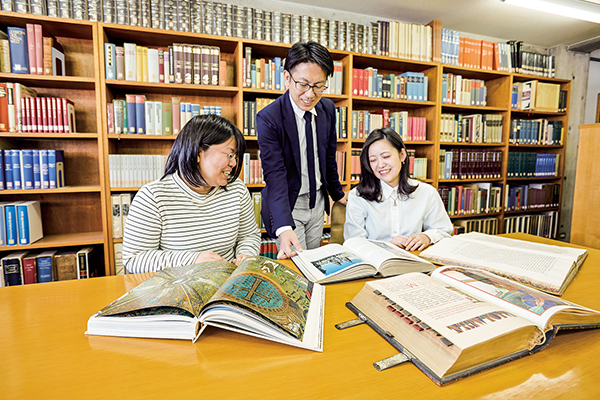
The long-standing conflict in the Middle East and the problems surrounding terrorist attacks on the West are often spoken of in terms of religious conflict, yet the fundamental concern of religion is the pursuit of peace and happiness for humanity. Surely it is rather the case that the insoluble problems of everyday modern society, such as prejudice and economic deprivation, are exploding in the name of religion. A deeper knowledge of Christianity allows us to understand the background to the problems of the modern world and also gives us the opportunity to find peaceful solutions through dialogue and mutual understanding. In the Department of Christian Studies, based on a thorough study of the Bible, we reflect on the history of Christianity from its origins to its present state and, through a broad study of Christian art, culture, and philosophy on the one hand and theological issues on the other, we consider the ethical and practical implications these have on our lives and life itself. Deciding how we deal with the multifaceted problems facing the world today requires that we redouble our efforts to determine what our contribution to the world is to be.

Features of the Department
- The Theology course is run in conjunction with the training program for entering the Catholic priesthood.
- The Christian Culture course looks at the nature of Christian culture from a broad perspective, involving studies of Eastern and Western Christian thought as well as a comparative study of Asian religious thought.
- After completion of the general education program, in accordance with their academic interests and future aspirations, students can choose between the Theology and the Christian Culture courses.
- The study of a range of subjects including philosophy, biblical studies, and Christian ethics is common to students of both the Theology and the Christian Culture courses.
- Students also study the ancient classical languages of world civilization: Hebrew, Greek, and Latin.
- Student intake is kept low to ensure a high teacher-student ratio.
